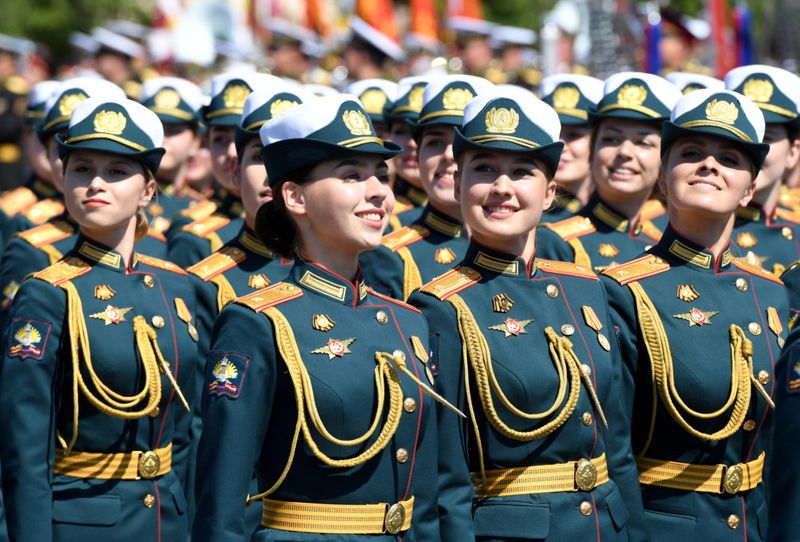
It wasn’t until 1965 that Victory Day became a holiday. After the first Victory Parade was held in June 1945 on Red Square, in which the Soviet soldiers deposited the Nazi banners at the feet of the Mausoleum, the country did not hold a parade for 20 years.Īs historian Denis Babichenko says, both Joseph Stalin and his successor Nikita Khrushchev feared that the Great Patriotic War commanders would strengthen their positions and therefore did not focus everyone's attention on their and other veterans' merits. So why does Russia go all out in celebrating the date? ‘It wasn't always like this’Īs strange as it sounds, in the USSR (the victor in the Great Patriotic War) parades were more modest than in modern day Russia - and rarer. 2015 in honor of the 70th anniversary of the end of WWII, but this was a one-off event. China held a huge military parade in Sept. do not celebrate the end of WWII with large military processions. The following year the country spent 295 million ($5.1 million). On the 70th anniversary of Victory Day in 2015, Russia spent 810 million rubles ($14.2 million). The defense minister (who today is Sergei Shoigu) always participates in the parade. Each year thousands of soldiers march over Red Square’s cobblestones and the parade shows off the country's military hardware, like the “Armata” tank in 2015. One of the most recognized images of the celebration, along with the evening fireworks and the carnations given out to veterans, is parade that rumbles through Moscow. The holiday unites people from all walks of life and about 24 million people - one out of every six Russians - participated in the 2016 Victory Day celebrations. Therefore, it’s no surprise that Victory Day - celebrating the defeat of Nazi Germany - on May 9 is one of the most popular celebrations in Russia. The Kremlin faces a stark choice between trying to win the war with a limited force or attempting to bolster its troops in Ukraine with draftees and reservists, a move that could bring public outrage and potentially destabilize the political situation.When sociologists ask Russians what they are most proud of in their country’s history, the most popular response for the last twenty years has been the victory in the Great Patriotic War, 1941-1945. If the war drags on, the current Russian troops numbers in Ukraine could be insufficient to sustain the operations, forcing the Kremlin to rely on poorly trained conscripts or call up reservists. Western officials have said Russian losses were much heavier and estimated that up to a quarter of Moscow’s initial attacking force was made unfit for combat. The military acknowledged losing 1,351 soldiers as of March 25 and hasn’t updated its casualty numbers since then. Western officials estimated the initial strength of Russia’s invasion force at about 180,000. Russia’s military has about 1 million service personnel - 400,000 of them contract soldiers, including 147,000 in ground forces. Russian authorities have claimed that only volunteer contract soldiers have been fighting in Ukraine, even though many conscripts were taken prisoner in the war’s initial days.

Some Western officials and observers believe Putin may use May 9 to formally declare a war and announce a total mobilization of the population to boost troop numbers for an offensive. Some Russian hard-liners have criticized the Kremlin for using only a limited force and urged a nationwide mobilization effort. Some in Ukraine and the West expected Putin to try to seek quick gains before the May 9 holiday in a possible attempt to present it as a decisive victory and use it as an exit from what increasingly looks like a disastrous quagmire bleeding Russia’s resources and threatening its stability. Russian Foreign Minister Sergey Lavrov fired back by drawing a parallel between Zelenskyy and Adolf Hitler - a statement that has drawn sharp criticism from Israel. Ukrainian President Volodymyr Zelenskyy, who is Jewish, has derided the Kremlin “denazification” claim. The rhetoric also has been used by the Kremlin to try to bolster public support for the war amid heavy losses of troops and equipment as well as massive economic damage from Western sanctions. To try to back up the claim, Putin and his officials have pointed to the adulation by Ukraine’s right-wing groups of nationalist leaders Stepan Bandera and Roman Shukhevych, who sided with the Nazis during World War II and their perceived use of Nazi units’ symbols.


 0 kommentar(er)
0 kommentar(er)
